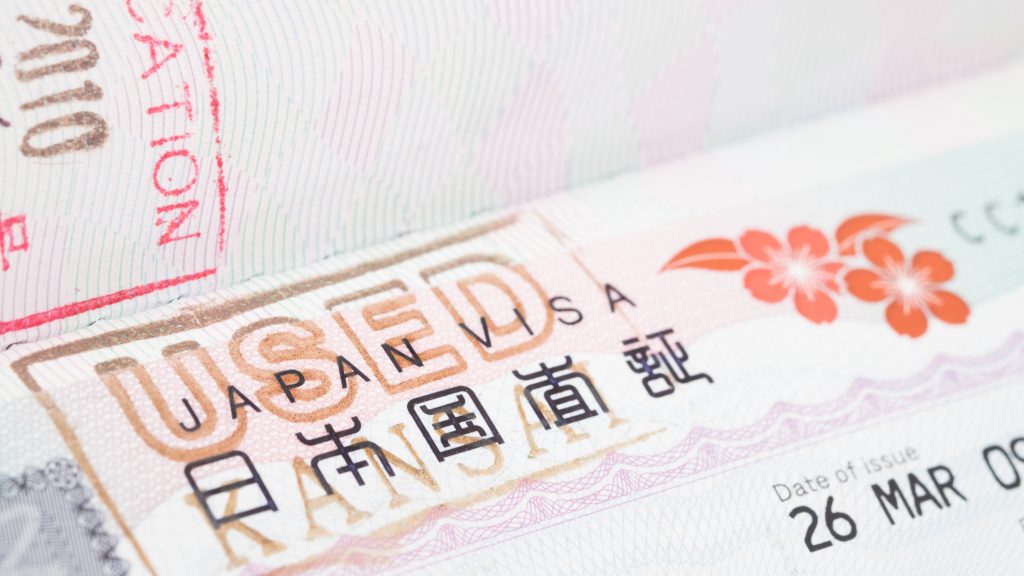Japan is an ever-growing market, and it’s a hugely popular choice for foreign individuals and businesses who want to take the challenge of opening or expanding their business abroad. We have talked in our blog about entering the Japanese market , but in this article, we will be diving deep into the technicality of registering and establishing your own company in Japan.
While Japan may not be among the top countries in Foreign Direct Investments (FDI), reaching only $14.5 billion of investment in 2019 (compared to, for example, Germany’s foreign investments in 2020 of $74 billion according to UNCTAD 2020 Report), Japan’s government is actively seeking ways to make it easier and smoother for foreign investors and entrepreneurs to start their business. There are a lot of initiatives that took place over the past couple of years that prove that Japan is trying to establish better FDI. For instance, the Ministry of Economy alongside METI are now implementing various measures to promote the creation of new business and to support their growth. This includes the J-startup Program and the introduction of start-up visas.
It’s easier than ever to start a business in Japan!
Table of Contents
- Visa types for starting a business in Japan
- Types of company structures available when starting a business in Japan
- Pre-establishment requirements
- Preparing your documents of incorporation to start a business in Japan
- Depositing capital to start a business in Japan
- Registration at the Affair Bureau
- Final thoughts
Visa Types For Starting A Business In Japan
The first and most important part when starting a business in Japan, is obtaining a visa. As we mentioned, Japan has been trying in the last years to introduce new processes to make it easier for foreigners to invest and build a business inside Japan. Here’s a list of visa types that can be obtained when starting a business in Japan:
1. Business Manager Visa:
A Business Manager visa is an employment eligibility status for foreigners who want to either launch a business or take part and engage in the operations of an already existing business.
Business Manager visa permits:
- Starting and managing a business in Japan (Entrepreneurship).
- Managing a business that is already established in Japan.
- Managing a business on behalf of people (including corporations).
If you do not hold a Japanese visa, then you can apply for a 4-month Business Manager visa. Once you succeed in the application, you will receive a resident card, but note that you will also need a residential address to obtain the card.
If you do hold any other Japanese visa, you will need to change your visa to a Business Manager visa after the completion of your corporate registration.
There are two options for changing your visa to a Business Manager visa:
- If you already hold a different type of visa, you may apply for a change of status of residence to 1-year Business Manager visa.
- If you obtained the 4-month Business Manager visa, you may then apply for an extension of stay and change it to 1-year Business Manager visa.
2. Start-Up Visa

The startup visa program is a temporary residence permit for entrepreneurs who want to start a business in Japan but don’t have enough resources to apply for a Business Manager Visa. The visa validity is only for 6-months to 1 year and it is only available in specific cities or prefectures. The list is available on the METI (Ministry of Economy, Trade and Industry) site on this page.
To apply for the visa, you will have to submit a business plan in Japanese to get a recommendation letter from the local government office in one of the listed cities. Once you get the documents, you can apply at the immigration bureau. The start-up visa allows you the same rights as a 4-month Business Manager visa.
3. Investor Visa
The Investor Visa can be granted for 1, 3, or 5 years which makes it unique when compared to other visa types. However, the duration of the granted period or if you can prolong it depends on the profitability of your business and other performance metrics.
The required documents for an investor visa depend on the type of business you are planning to start and of course your financial situation. In the list below you can find some of the documents you’ll need to qualify for the visa (the requirements might change with time, so double check here for the required documentation):
- Elaborate Business Plan.
- Investment Information.
- Company Registration Documents.
- Business license.
- Office Rental Agreement Document.
- Proof Of Professional Background.
- Employee Documents.
The process for obtaining the visa is:
- Establish Your Company.
- Apply for an investor visa Certificate of Eligibility (COE).
- Once you have the COE, exchange it for the investor status of residence at your company’s embassy or consulate in Japan.
If you don’t have the option to get help from a certified professional in Japan, you will have to do all this by yourself. This is why many entrepreneurs and investors decide to go with the 4-month visa and then submit an application for an investor visa after they have settled their business in Japan.
Types of Company Structures Available When Starting a Business in Japan

Stock Company (Kabushiki Kaisha)
A Kabushiki Kaisha, usually abbreviated as KK, is a type of business corporation defined under Japanese law and is commonly translated as a Stock Company. KK is a company whose stocks can be traded in the open market. This is the most common form of business in Japan and is usually viewed as more trustworthy within the Japanese society.
Limited Liability Company (Goudou Kaisha)
A Goudou Kaisha, abbreviated GK, is a type of business structure modeled after the American Limited Liability Company. Unlike the KK, it doesn’t have the option to publicly trade its stocks.
Pre-Establishment Requirements
After deciding which type of visa you want to apply for, you will need to start preparing the required documents to establish your company.
1. Work Office
The first thing you need to do is to secure an office space in Japan to run your business. It is very important to note that this cannot be a virtual office, temporary structure, or houses. Also know that using a residence is not usually accepted (but there are some exceptions). You have options like short-term office rental, which offer various benefits like flexible lease terms, management options, start-up prices and sometimes access to furniture, IT and office equipment.
2. Business Content
You will be asked to present a proposal that explains your business clearly and practically. It is crucial to include all sorts of details like profit and loss statements, your personal business history, etc. It is also very important to make sure that your business plan does not disobey Japanese law.
In some cases, a website can suffice for proving the existence of the company, though you always want to err on the side of “more is more” in order to pass the review process. Having to redo this process can be both time-consuming, and cost intensive if you’re using third party partners to get the business registered.
3. Investment and Loans
There is a lot of misconception of how much investment is needed to start your own business in Japan and whether you need to hire Japanese staff in order to establish your business. There is a bit of flexibility in this area and the Japanese government offers the below options:
- To obtain the business manager/ investor visa, you’ll need to have a capital or overall investment of 5,000,000 yen.
This means that you will be required to show the amount in your corporate bank alongside your finance report. If you’re going to take a loan, you will need to submit the loan contract as an evidential document.
- If, however, you have a long-term residency in Japan, you can establish your company with any amount you would like.
4. Bank account
Before establishing your business in Japan, you will need to open an individual bank account. This might be a bit challenging for foreigners, due to the language barrier and the bureaucratic procedures in banks. However, there are now a lot of foreigner-friendly banks in Japan with English-speaking staff that can help you register an account.
To open an individual bank account before establishing your company, you will need:
- Proof of residency rights/visa
- Contact information like phone number and address
- Residence card.
- Initial deposit amount (there are no minimum requirements in most cases but confirm with your bank first).
Note that some financial institutions have different requirements, and you might need more documentation. Be sure to check with your Bank all the requirements to set up your business account.
A common bank for foreigners is Mizuho, which tends to offer more foreigner-friendly options in a number of ways. However, these terms are always changing.
Some other things to consider when choosing a bank are:
- Bank transfer fees (domestic)
- Bank transfer fees for international transfers
- Residency requirements for the individual setting up the account
- Amount of operations that require you to be on-site at the bank branch (vs. being able to coordinate digitally)
Preparing Your Documents of Incorporation to Start a Business in Japan

Preparing documents might not be the most exciting part of setting up a business in another country, but it’s crucial for the process of incorporation in Japan. Out of all the documents needed, the articles of incorporation (teikan) are possibly the most important documents that highlight how your company will be managed. They vary based on the type of business structure. We listed below the needed Individual and Company requirements that you will need when Incorporating in Japan, divided in: “Foreign Individual Requirements” and “Foreign Company Requirements”.
Foreign Individuals Requirements:
-
Seal Certificate
-
Company Seal
-
Investor’s personal bank account and passbook
Foreign Company Requirements:
-
Registration certificate of parent company
-
Notarized Signature Of Each Director
-
Company Seal
Note that if you are a foreign individual expanding your business in Japan, you will need all the documents listed above.
Trademark Registration:
Registering a Trademark means that the Japanese authorities will officially recognize it and see you as the person with full control and proprietorship over your company.
Before registering Intellectual Properties like Diagrams, Pictures, Colors, 3D Objects, Position Marks, Moving Marks, Holograms and Pictures in Japan you will first need to make sure that identical or similar trademarks have not been registered by other applicants before you make any request. You can find all the details for registration on the Japan Patent office site, on the page dedicated to Trademarks.
Notarization of Documents
To notarize your articles of incorporation, you must visit the Notary Office (Koshonin yakuba). If your company is a Goudou Kaisha, you do not incur any cost for a notarized revenue stamp, nor for notarization of your documents. If, however, you’re setting up a Kabushiki Kaisha, you will need to notarize all of your articles of incorporation which will cost 50,000 yen on top of the fee for the revenue stamps (40,000 yen) which makes a total of 90,000 yen.
Depositing Capital to Start a Business in Japan

If you’re setting up a subsidiary company in Japan, the process is simple where all you have to do is make a deposit in the Representative Director’s personal bank account.
For other companies, you can use your personal bank account until you finish your registration process, or use one of the investor’s personal bank accounts in Japan to deposit the initial capital.
Note that the government will check your bank book and will be looking for the exact line item of capital to register. This means that simply having at least that much money in the account is usually not enough. You’ll need to create a line item for that amount. In Humble Bunny’s case, we had to withdraw the capital amount and then re-deposit it in order to create the entry exactly to the capital amount registered.
It seems like added weight and extra effort, but you’ll find there’s a good deal of that in Japan.
Registration at the Affair Bureau
After preparing all the documents, you can file the application for business registration at the Registry office (Homukyoku). The registration fee minimum is 150,000 yen for Kabushiki Kaisha and 60,000 for Goukou Kaisha.
Final Thoughts
Starting your own business in Japan can be overwhelming since the process is very long and can be complicated. However, you need to take it one step at a time to avoid feeling discouraged. The Japanese government has been trying to increase its support for foreign enterprise since 2015 which led to a steady increase in foreign business in Japan. This means that we are expecting more improvement in the Japanese bureaucracy, like making it easier to acquire foreign business visas and register documents.
Good Luck with your business in Japan!
Need help gaining traction for your business in Japan? Let’s chat on how we can help.
Steal Our Best Ideas
Actionable insights straight from our data
Below are a few quick discoveries we’ve pulled from the data of our latest projects. Why? To help you make the changes you need to gain traction in the Japanese market!
As an agency, we are always trying to dig deeper and searching for those little, yet significant, tweaks that will push our clients to the next level of success. For instance, we’ve found in the past that something as little as converting a brand name to Japanese characters for the purpose of PPC marketing can result in as much as 246.2% more impressions and 455.6% more clicks.
If you need a partner to help you identify and implement changes like these on a monthly basis, let us know!



